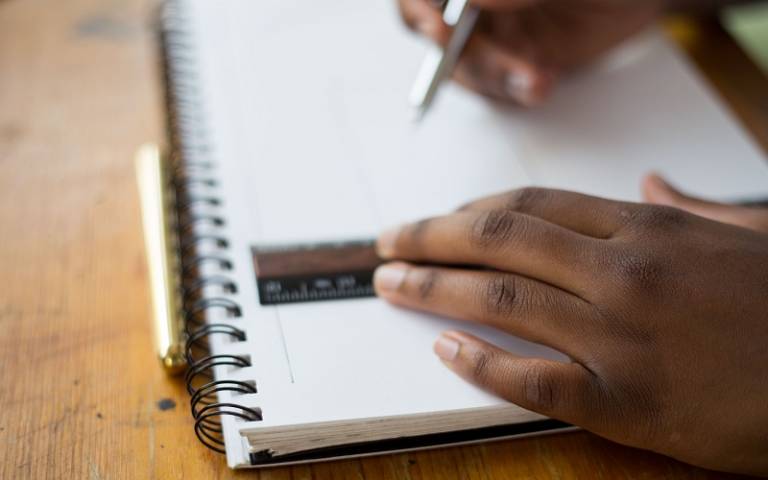My 10 steps to acing your exams
4 May 2020
Annamaria Dall’Anese, PhD student in UCL Anthropology, shares her 10 top tips for acing your exams.

We are approaching that time of the year when exams loom. Preparation can be stressful: there is always too much to learn and, with ever more papers to read, the finish line seems to recede to the horizon.
Exam preparation is also nerve-wracking because it inevitably pushes aside other commitments, which then mushroom out of proportion. Focusing on your exams may also lead you to neglect personal relationships.
And that’s without even mentioning the “challenging times” and “new normal” we find ourselves in. The less said about that the better!
I get it.
Here are a few study strategies, as well as a few tips to meaningfully integrate your studies into your life.
Share
According to the ‘helper’ therapy principle, helping others benefits helpers as well as those who are helped. Are any of your classmates struggling with their revision? Offer to call them and go through their questions together. Not only will you forge more meaningful friendship ties, but you will also consolidate your own knowledge. There is no better way of learning than teaching others.
Speak
Anything louder than a whisper is out of place in a library but, working from home, you can try to find a space where nobody minds your decibels. When you say things out loud, you identify your Achille’s heel: a mumble or stumble probably means you have more work to do to grasp that passage or theory; a coherently formulated sentence is a concept you have mastered.
Repeat
‘Eat-sleep-repeat.’ Or, if you want the more high-brow Latin version, ‘repetita iuvant’ (literally: repeating does good).
Repeating those difficult lessons out loud is useful, and if you do it again, again, and again you will consolidate them in your memory. And you could give the pooch or kitten lying at your feet a chance to get their doctorate honoris causa.
Tackle it
You know what your own elephant in the room is: those notes you never finished copying; that experiment that needs writing up; that book you never borrowed (let alone read).
So, don’t beat around the bush: take the bull by the horns!
Draw it
Or sing it. Or build it. Or bake it. Or e-moji it. There are innumerable ways to turn texts, formulae or processes into something catchier and more memorable. Find your own way of being creative and make studying more fun.
Stick it
Turn your flat from a blank canvas into a revision notebook. Strategically placed post-it notes can do miracles when it comes to retaining difficult bits of information. Shaving and doing the washing up never got this intellectual.
Stick to it
Exam time may be an extraordinary time of the year, but ultimately you are going through it with your own personality, your own body, and your own routine. When are you most productive? When would you rather take a rest? Where can you concentrate better? What do you usually eat? How much do you usually exercise? Stick to it.
Time it
Time is the most equally distributed asset in the world: we all have 24 hours. So do not tell your loved ones you ‘do not have time’ for them because you are preparing for your exams. Rather, try allocating some time to them: they know how to pamper you and how to give you the buzz you need. And being aware that some of those 24 hours are not ‘study time’ will help you be more productive.
Love it
You may not realise it, but as you swallow all that knowledge, you become a better person. Look back to when you had just joined UCL: how much ground have you covered since then? Regardless of what your discipline is, what you learn enriches you and makes you a more valuable person to those who surround you. So love every bit of it.
Smash it
If you have managed to stick to the above points, you should be ready to face the challenge. Be in the flow: passionate about your discipline, knowledgeable about your subject, and confident about your memory. This will help you concentrate on your exam questions, and on the information you have to answer them.
Annamaria Dall’Anese
 Close
Close

